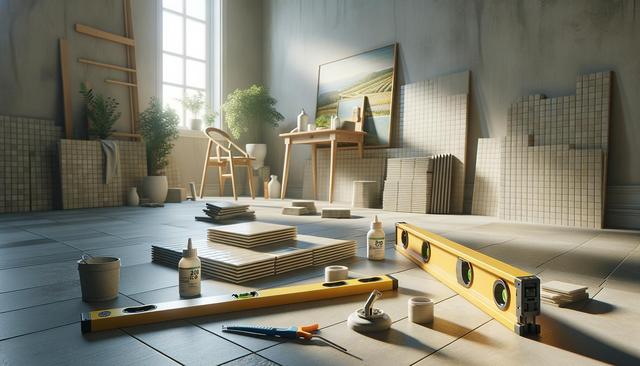Understanding the Role of a Tile Installer
Tile installers are skilled professionals who specialize in laying various types of tiles on floors, walls, and other surfaces. Their work involves more than just placing tiles; it requires precision, an understanding of materials, and the ability to follow detailed design plans. A qualified installer ensures that tiles are aligned correctly, cuts are clean, and adhesives are properly applied, all of which contribute to the durability and aesthetic appeal of the finished surface.
Before beginning a project, tile installers assess the area, prepare the surface, and determine the best layout to minimize waste and ensure symmetry. They work with materials such as ceramic, porcelain, stone, and glass, each requiring different installation techniques. Their expertise can help avoid common issues like cracking, uneven surfaces, and premature wear.
Benefits of Hiring a Professional
While DIY tile installation might seem cost-effective, hiring a professional comes with numerous advantages. A seasoned installer brings years of experience, which translates into better craftsmanship and fewer errors. Professional installers also have access to specialized tools that ensure a more efficient and precise job.
Some benefits of hiring a tile installer include:
- Accurate measurements and tile cuts
- Proper surface preparation to prevent future damage
- Expert grout application and sealing
- Time-saving due to efficient work processes
Additionally, many professionals offer warranties on their work, providing peace of mind should any issues arise after the installation. Their familiarity with building codes and safety standards also ensures the project is completed correctly and legally.
How to Choose the Right Tile Installer
Selecting the right installer requires more than just a quick online search. It’s essential to verify credentials, evaluate past work, and check customer reviews. Start by asking for recommendations from friends, family, or local hardware stores. Once you have a list of candidates, schedule interviews to discuss your project in detail.
When evaluating a potential tile installer, consider the following:
- Years of experience with the specific tile type
- Portfolio of completed projects
- References from previous clients
- Licensing and insurance status
Clear communication is also crucial. A good installer will be transparent about costs, timelines, and potential challenges. This upfront clarity helps avoid misunderstandings and keeps the project on track.
Project Planning and Budgeting
Proper planning is key to a successful tile installation. Begin by defining the scope of your project: Are you tiling a small bathroom or an expansive kitchen floor? Knowing the size and complexity will help you and your installer prepare accurate estimates. Budgeting should include not only labor but also materials, tools, and any prep work required, such as removing old flooring or leveling the surface.
Additional factors that can affect your budget include:
- Tile quality and material (e.g., ceramic vs. natural stone)
- Pattern complexity (simple grid vs. intricate mosaic)
- Custom cuts or borders
- Grout and sealant choices
Discuss all costs with your installer in advance and request a written quote. This document should outline labor rates, material costs, and any additional fees. Having a clear financial plan will help you manage expenses and avoid surprises.
Aftercare and Maintenance
Once your tiles are installed, proper maintenance ensures they remain in excellent condition for years. Your tile installer should provide care instructions tailored to the specific materials used. For example, natural stone may require periodic sealing, while ceramic tiles are generally lower maintenance.
Basic tile care tips include:
- Regular sweeping or vacuuming to remove dirt
- Using appropriate cleaners that won’t damage the surface
- Promptly cleaning spills to prevent staining
- Inspecting grout lines and resealing if necessary
Understanding the maintenance needs of your tile helps extend its lifespan and keeps it looking new. If issues arise, such as cracked tiles or loose grout, contact a professional promptly to assess and repair the damage before it worsens.
Conclusion: Making the Right Choice for Your Home
Choosing a tile installer is an important step in any renovation or construction project. With the right professional, you can expect quality results that enhance the beauty and functionality of your space. Take the time to research, plan, and communicate clearly to ensure a smooth process from start to finish. Whether updating a bathroom, kitchen, or entryway, a reliable tile installer plays a key role in achieving a durable and attractive outcome.


